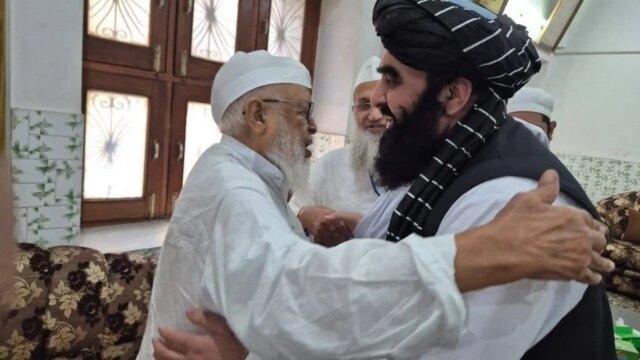New Delhi, Oct 11: Afghan Foreign Minister Amir Khan Muttaqi’s visit to the Darul Uloom Deoband seminary is being viewed as a defining moment in South Asia’s Islamic diplomacy, with observers describing it as a symbolic move to reshape Kabul’s religious and geopolitical orientation.
According to a News18 report, the visit underscores Afghanistan’s intent to reclaim its spiritual roots and distance its Islamic narrative from Pakistan’s clerical establishment.
During his visit, Muttaqi hailed Deoband as the “Madre Ilm” (Mother of Knowledge), noting that Afghanistan continues to draw moral and spiritual guidance from the Indian seminary, which has long inspired Afghan ulema. He stressed that a genuine Deobandi embodies moderation, unity of the Ummah, and peaceful coexistence—values that stand in contrast to extremism carried out in the name of Islam. Muttaqi also expressed gratitude to Indian scholars for preserving the Deobandi intellectual tradition.
A senior Deobandi cleric welcomed Muttaqi “as a student returning to his school,” remarking that ilm (knowledge) and akhlaq (character)—not warfare—represent the true Deobandi ethos. He underlined the shared spiritual lineage between India and Afghanistan and argued that dialogue and scholarship are the most effective tools to bridge regional divides and restore aman aur insaaf (peace and justice).
Analysts cited by News18 believe the visit reflects a deeper geopolitical recalibration by the Taliban regime. For decades, the movement was ideologically tied to Pakistan’s Darul Uloom Haqqania in Akora Khattak—often dubbed the “University of Jihad.” Muttaqi’s outreach to India’s Deoband, they note, signals Kabul’s effort to assert an independent Islamic identity and shift its spiritual centre of gravity away from Rawalpindi’s influence.








